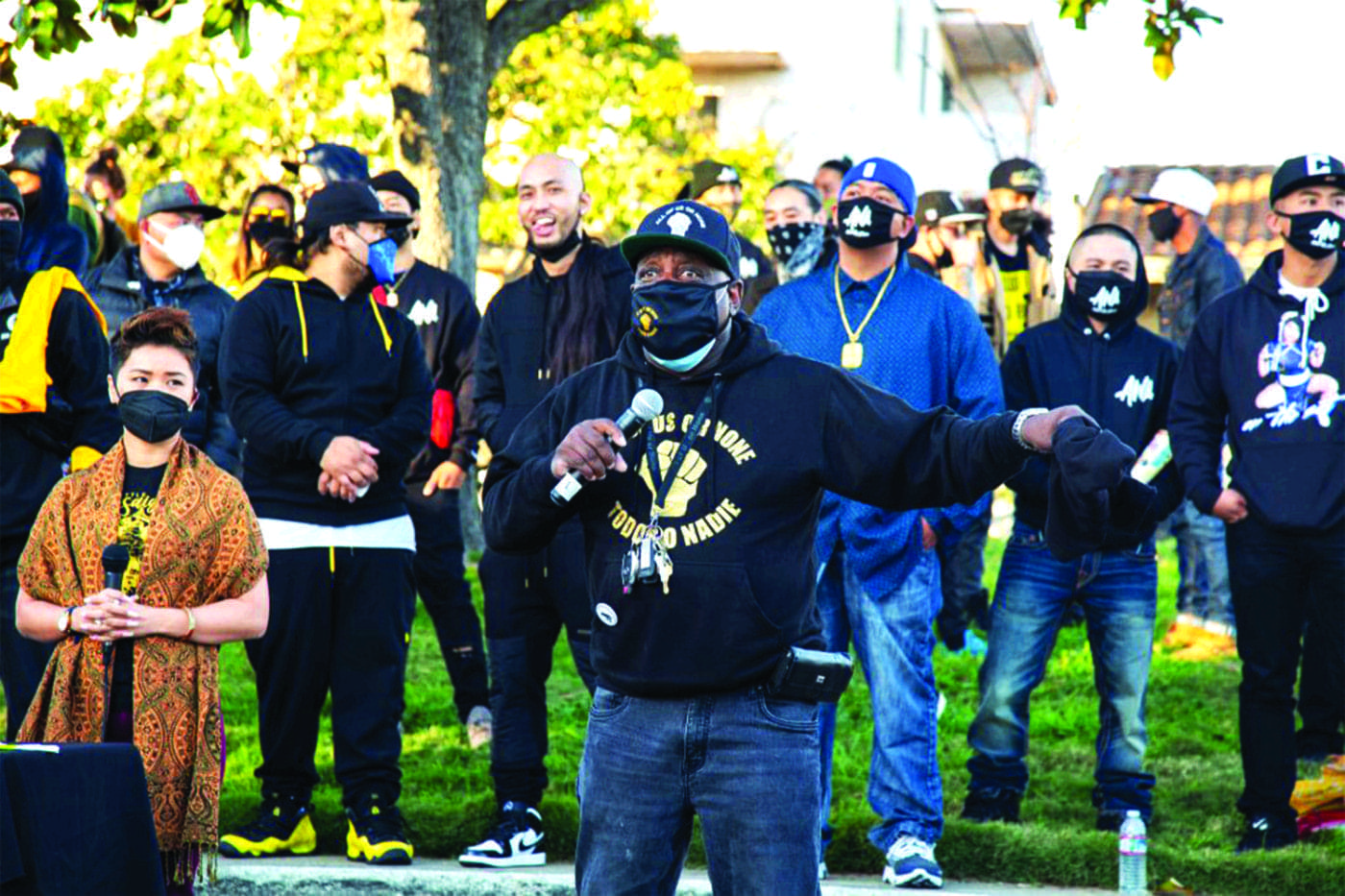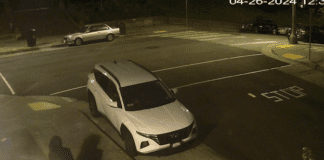
2022 legislative update from Legal Services for Prisoners with Children
Record Clearing
AB 124 (Kamlager) Relief for victims of human trafficking, intimate partner violence, or sexual violence, trauma and youth offenders (Pen. 236.15, 236.23, 236.24, 1016.7, 1170).
- Allows vacatur relief for people who establish by clear and convincing evidence that an arrest or conviction was the direct result of being a victim of intimate partner violence or sexual violence (but victim restitution must still be paid). (Already allowed for victims of human trafficking).
- Requires a court, when considering whether to resentence a defendant under section 1170(d), to consider whether any trauma, victimization as described above and/or youth (up to age 26) contributed to commission of the crime.
See also Criminal Law section below.
AB 145 (Budget Committee) Automatic record clearing (Pen. 851.93, 1203.425). Amends automatic record clearing law to cover convictions in or after 1973 (subject to funding).
AB 262 (Patterson) Vacatur relief for victims of human trafficking (Pen. 236.14).
- Stays collection of fines (but not restitution) when victim of human trafficking seeks vacatur of nonviolent offense.
- Prohibits court from denying vacatur relief because of outstanding fines or fees or failure to meet conditions of probation.
- Allows victim to seek vacatur at any time.
- Allows victim to appear by counsel if petition is unopposed.
- When vacatur granted, requires records to be sealed/destroyed by later of one year after arrest or 90 days after petition granted, expands agencies who must seal/destroy records and requires improved notice of record sealing/destruction.
AB 898 (Lee) Automatic record clearing procedures (Pen. 1203.425, 1203.9, 13151). Procedural and notice changes applicable to cases where probation supervision was transferred to a different county.
AB 1259 (Chiu) Setting aside conviction for failure to explain immigration consequences (Pen. 1473.7). Allows person no longer in custody to vacate conviction or sentence based on a prejudicial failure to explain immigration consequences (previously limited to guilty or no contest pleas).
AB 1281 (Blanca Rubio) Protective orders unaffected by record clearing (Pen. 1203.4, 1203.4a, 1203.4b, 1203.425). Requires protective orders to stay in effect even if the associated domestic violence, elder abuse or stalking conviction is dismissed via a record clearing remedy.
SB 211 (Umberg) Allows legal aid agencies to help with expungements/record clearing (Bus. & Prof. 6213(l)). Expressly allows legal aid agencies to help low-income clients with expungements/record clearing, which had been at risk because authorities deemed it not to be a “civil” legal service.
SB 446 (Glazer) Compensation for incarceration while innocent or due to government misconduct (Pen. 1485.5, 1485.55, 4900, 4902, 4903 and 4904).
Requires CA Victim Compensation Board to recommend to Legislature compensation for:
- A person whose writ of habeas corpus was granted in state or federal court.
- A person whose conviction was vacated under Pen. 1473.6 (government misconduct) or 1473.7(a)(2) (new evidence of actual innocence) and then the charges were dismissed or the person was acquitted on retrial.
Unless the Attorney General establishes by clear and convincing evidence that the person committed the charged acts (without relying solely on the trial record of a conviction that has been reversed or dismissed). Failure to request finding of factual innocence, unfavorable ruling on such a motion or denial of compensation shall not have res judicata or collateral estoppel effect in other proceedings.
Other Reentry
AB 176 (Budget Committee) Restrictions on FTB wage garnishment and bank levies for collection of vehicle and criminal fines/fees (Civil Proc. 704.220(a), 706.050). Extends the following protections to vehicle-related debt and criminal fines and fees (not including restitution):
- Wage garnishment: Maximum is 25 percent of the person’s weekly post-tax earnings or 50 percent of the amount over 40 times the local minimum wage, whichever is less.
- Bank levy: May not collect more than the “Minimum Basic Standard for Adequate Care” (MBSAC) for a family of four (regardless of debtor’s family size), currently $1,826
AB 177 (Budget Committee) Repeal of criminal fines and fees (Pen. 1001.15, 1001.16, 1001.90(g)-(h), 1202.4(l), 1203.1(l), 1203.1ab, 1203.1c, 1203.1m, 1203.4a, 1203.9, 1205, 1214.5, 1463.07, 2085.5, 2085.6, 2085.7, Veh. 40508.5, 40510.5). Repeals 18 criminal fines and fees and provides $75 million in “backfill” funding to counties over two years to recoup supposed losses due to the repeals.
AB 417 (McCarty) Support for Rising Scholars Network (Educ. 78070 et seq.). Authorizes increased funding for Rising Scholars Network, which supports formerly incarcerated students in California community colleges and recommendations for strengthening the network.
AB 628 (Eduardo Garcia) Breaking Barriers to Employment Initiative (Unempl. 14031-35). Renews and expands a current grant program, shifting focus to addressing racial, ethnic and socioeconomic disparities in the labor market. Supported by $25 million budget allocation.
AB 1480 (Rodriguez) Exception to Fair Chance Hiring Act for Nonsworn Criminal Justice Agency Workers (Labor 432.7, Pen. 13203). Exempts “nonsworn members of a criminal justice agency” from protection under the Fair Chance Act, which limits employers’ ability to deny jobs based on criminal justice history.
AB 1587 (Government Organizing Committee) Horse Racing Background Checks (Bus. & Prof. 19431, 19448). Allows fingerprinting and criminal history checks for employees, contractors and licensees of the CA Horse Racing Board.
SB 92, §22 (Budget Committee) Reentry rental assistance (no statute added or amended)
Allocates $50,000 to the Adult Reentry Grant program for rental assistance.
SB 241 (Umberg) Allows remote court appearances indefinitely (Bus. & Prof. 8050-8051, Civil Proc. 367.75, 599, 1010.6, Probate 3505). Allows remote court appearances past the expiration of COVID emergency orders.
SB 498 (Umberg) Increases maximum income for legal aid (Bus. & Prof. 6213-6214)
Increases income threshold for legal aid eligibility from 125 percent to 200 percent the federal poverty level, and veterans disability benefits no longer count toward income.
Juvenile Justice
AB 46 (Luz Rivas). CA Youth Empowerment Act (Gov. 8261 et seq.). Establishes CA Youth Empowerment Commission, consisting of commissioners aged 14-25, to ensure young people are directly engaged with state policymaking. Commission would draft legislation, make recommendations on proposed legislation, hold hearings, award grants.
AB 145 (Budget Committee) California Sex Offender Management Board (Pen. 9001). Expands California Sex Offender Management Board to include someone with expertise in treatment or supervision of juveniles with sex offense history.
AB 145 (Budget Committee) Pine Grove Youth Conservation Camp (WIC 209, 730, 1760.45)
Allows juvenile court to place a juvenile at Pine Grove Youth Conservation Camp with possible firefighting program.
AB 624 (Bauer-Kahan) Right to appeal juvenile transfer orders (WIC 801). Authorizes immediate appeal of orders transferring juvenile delinquency cases to adult criminal court. Stays criminal proceedings pending appeal, and expedites such appeals.
AB 1318 (Stone) Deferred entry of judgment pilot program for juveniles (Pen. 1000.7). Extends existing pilot program in six counties for two years.
SB 92 (Budget Committee) Commitments of juveniles after DJJ closure (Welf. & Instit. 726, 731, 733.1, 736.5, 779.5, 875-876). Parts of this bill became effective July 1, 2021.
- Requires court to consider local secure youth treatment facilities (SYTFs) as alternative to DJJ for wards still eligible for DJJ (i.e., eligible offense, transfer to adult court sought).
- Requires DJJ to close by June 30, 2023, make plan to transfer remaining DJJ wards by Jan. 1, 2022.
- Allows counties to establish SYTFs beginning July 1, 2021.
- Allows commitment to SYTF if most recent adjudicated offense is a 707(b) offense and court finds less restrictive placement is unsuitable.
- Requires courts to set term of confinement as follows:
- Baseline term per Judicial Council matrix to be developed by July 1, 2023 (in meantime, per DJJ regs 30807-30813 plus or minus 6 months)
- Maximum term if sent to an SYTF:
- Cannot exceed adult middle term.
- If aggregate adult sentence would be seven or more years, maximum term cannot go beyond two years or 25th birthday, whichever is later.
- Otherwise, maximum term cannot go beyond two years or 23rd birthday, whichever is later.
- Actual commitment may not exceed baseline due to in-custody behavior.
- Requires court to approve individual rehabilitation plan for each committed ward.
- Requires court to hold progress hearing at least every 6 months and consider reducing baseline term and/or transferring ward to a less restrictive program.
- Requires court to hold probation discharge hearing once baseline term served. Extended detention of persons physically dangerous to the public will be governed by Judicial Council guidelines, which likely will be enacted as law by July 1, 2022.
SB 383 (Cortese) Expanded informal probation and deferred entry of judgment for juveniles (WIC 654.3, 790, 791).
- Expands informal probation under sections 654 and 654.2 to include juveniles charged with drug sales or possession, including on school grounds, juveniles owing more than $1,000 in victim restitution, and juveniles who committed a felony when 14 or older (except offenses listed in section 707(b) unless unusual circumstances).
- If minor is unable to pay victim restitution, cannot be denied informal probation or found in violation of informal probation.
- If minor would be under supervision in a different county, original county can adjudicate case then transfer for other county to determine eligibility for supervision.
- In deferred entry of judgment cases, the prosecutor no longer needs to make formal statement explaining consequences of failure to comply.

 Store
Store


